 |
|||||||||




 |
|||||||||






LONDON, June 29, 2022 — QS Quacquarelli Symonds, global higher education analysts, published today the 10th edition of the QS Best Student Cities rankings, which enable students to compare 140 premier educational destinations, including 30 new entries.
London retains its status as the world’s best student city for the fourth consecutive edition. Munich (2nd =) shares its silver medal with Seoul (2nd =). Zurich (4th) and Melbourne (5th) break into the top 5, while Edinburgh (10th) joins the top 10.
London’s leadership is supported by:
• RANKING HIGHLIGHTS
UK, Germany, and Australia are each home to two of the world’s ten best student cities.
Paris rises to eighth place. Barcelona (31st) is Spain’s top city.
Canada boasts three top-20 student cities, while the US, Japan, and Switzerland have two each.
The US highest-ranking cities are Boston (11th) and NYC (18th).
All the 18 US-ranked cities decline in the Affordability indicator.
Los Angeles and Kuala Lumpur break into the top 30.
Seoul (2nd) is Asia’s top-ranked city.
China (Mainland) top entry is Beijing (29th)
Latin America’s number-one student destination is Buenos Aires (23rd)
Sao Paulo (86th) and new-entry Rio de Janeiro (121st) are Brazil’s ranked cities.
Cape Town (78th) is Africa’s top city for students.
Dubai (51st) is the top-ranked city in the Middle East.
The fastest rising cities are Almaty (75th), Abu Dhabi (71st), and Ankara (77th).
India doubles its representation. It now has four cities on the list: Mumbai (103), Bangalore (114), Chennai (125), and Delhi (129).
• RANKING METHODOLOGY
QS ranks cities with a population of at least 250,000 and at least two universities in the QS World University Rankings. The ranking offers a powerful lens into the sentiments of both prospective and former students, with over 98,000 survey responses contributing to the Desirability (prospective students) and Student View (former students) indexes.
• QS BEST STUDENT CITIES
RANK — CITY
Source: QS Quacquarelli Symonds
|GlobalGiants.Com|
Edited & Posted by the Editor | 10:35 PM | View the original post
• The world’s best universities revealed.

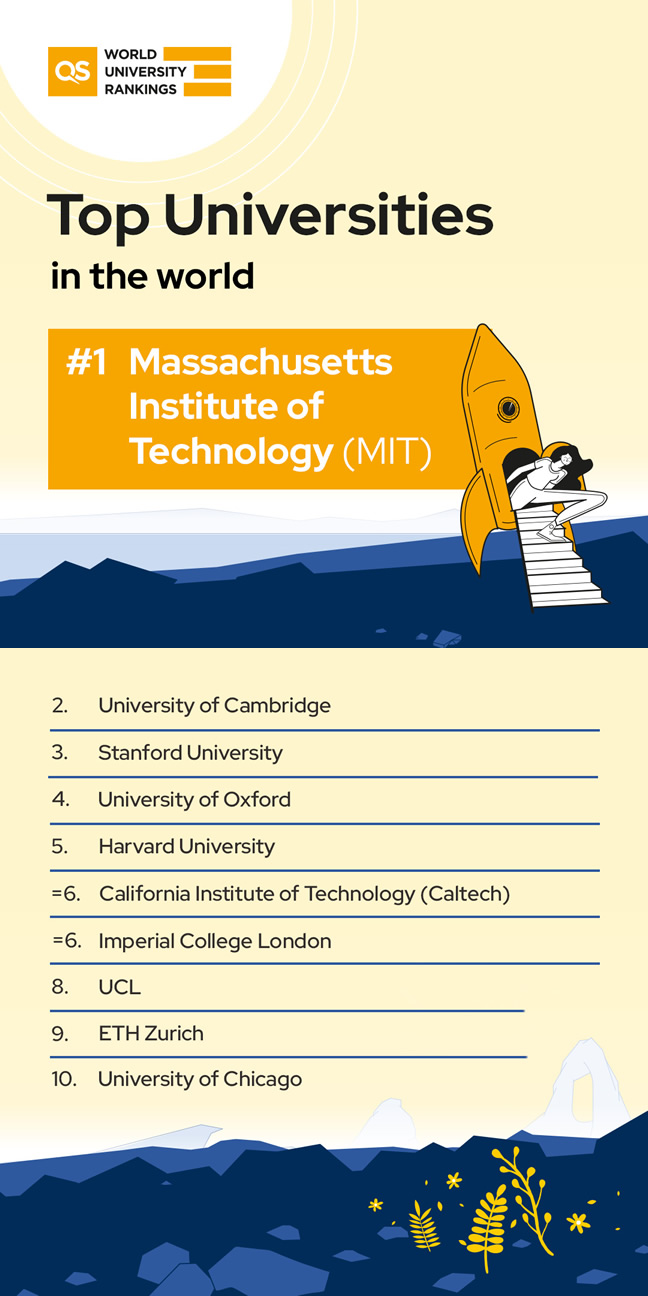
LONDON, June 9, 2022 — QS Quacquarelli Symonds, global higher education analysts, released the nineteenth edition of the QS World University Rankings, featuring 1418 institutions across 100 locations. The results account for 16.4 million academic papers and 117.8 million citations received by those papers. The rankings also reflect the expert opinions of 151,000 academic faculty and 99,000 employers. Massachusetts Institute of Technology (MIT) celebrates eleven years as the world’s best University. The University of Oxford (4th) drops two places while the University of Cambridge (2nd) gains one place.
• Highlights
USA: 103 of its 201 ranked universities fall, 29 institutions rise. Twenty-five universities are new entrants.
UK: 48 of its 90 ranked universities declined, and ten improved. Intensely collaborative: 55% of its research entails global collaborations vs. 20% global average.
Canada: 20 of its 31 ranked universities drop. McGill University (31st) is the new national leader.
Australia retains five top-50 universities, yet is stagnating, with as many universities improving as declining.
China (Mainland), the third most-represented higher education system (71 universities), is home to two world’s top 15 universities for the first time: Peking University (12th) and Tsinghua University (14th).
India: more improvements than falls; All top nine institutions rise.
Asia’s top university is the National University of Singapore (11th).
Malaysia, South Korea, and Indonesia improved while Japan and Thailand declined.
ETH Zurich has remained continental Europe’s best University for fifteen consecutive years.
France’s merged universities ascend in the table, with Université PSL (26th) breaking into the top-30.
Universidad de Buenos Aires (67th) is confirmed Latin America’s best. Hampered by low research impact scores, more of the continent’s universities are falling than rising.
Arab Region’s top University - King Abdulaziz University, 106th - reaches a record high.
Africa’s leader is the University of Cape Town (237th). However, only five of the continent’s universities are among the top-500.
• QS World University Rankings 2023
• Top 200
• QS World University Rankings 2023: INDIA
INDIA RANK — QS RANK — INSTITUTION
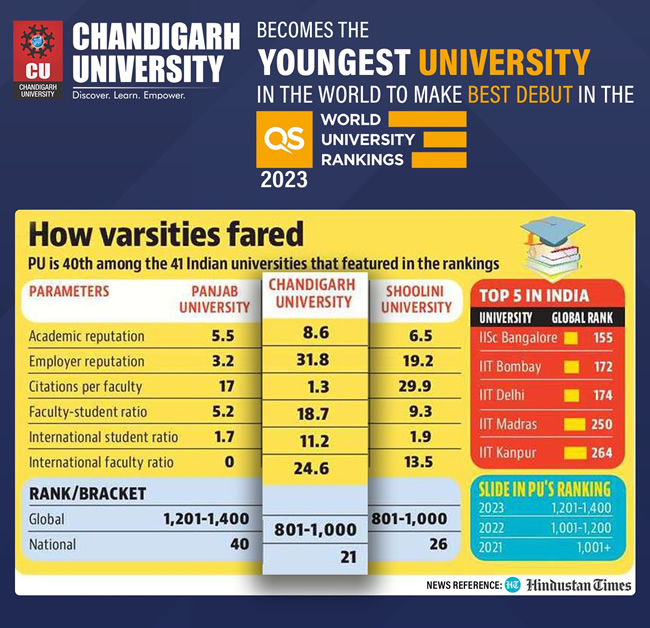
Photo: India QSWUR 2023 Chandigarh Region Graphic by Hindustan Times. Illustration Credit: Hindustan Times/Chandigarh University.
Source: QS Quacquarelli Symonds
|GlobalGiants.Com|
Edited & Posted by the Editor | 10:38 AM | View the original post

Photo: Rashtrapati Bhavan, the official residence of the President of India, New Delhi. Image credit: Rob Towell.
New Delhi, June 05, 2022 — The President of India, Ram Nath Kovind, will host the Visitor’s Conference 2022 at Rashtrapati Bhavan on June 7 and 8, 2022.
On June 7, 2022, the President will present the Visitor’s Awards in the Research and Technological Development categories in the presence of Union Minister of Education and Skill Development & Entrepreneurship, Shri Dharmendra Pradhan, and other dignitaries.
After the Visitor’s Awards conferment, the Conference will witness the presentation on ‘Role and responsibilities of Higher Education Institutions in Azadi ka Amrit Mahotsav’ by Prof. M. Jagadesh Kumar, Chairman UGC.
On June 8, 2022, the Conference will witness presentations and deliberations on various topics such as international rankings of Higher Education Institutions, the collaboration between Academia-Industry and policy-makers, integration of school, higher, and vocational education, and research in emerging and disruptive technologies.
The President is the Visitor of 161 Central Institutes of Higher Education (CIHE). 53 CIHE will physically witness the Conference, while other institutes will connect virtually. Apart from the heads of 161 institutions of higher education, the Union Minister of Education and Skill Development & Entrepreneurship, Shri Dharmendra Pradhan; Minister of State for Education, Dr. Subhas Sarkar; Secretary (Higher Education), Ministry of Education; Chairman of University Grants Commission; Chairperson of National Council for Vocational Education and Training; and Chairman AICTE will also attend the Conference.
Source: President’s Secretariat
|GlobalGiants.Com|
UPDATE
President of India Inaugurates Visitor’s Conference 2022
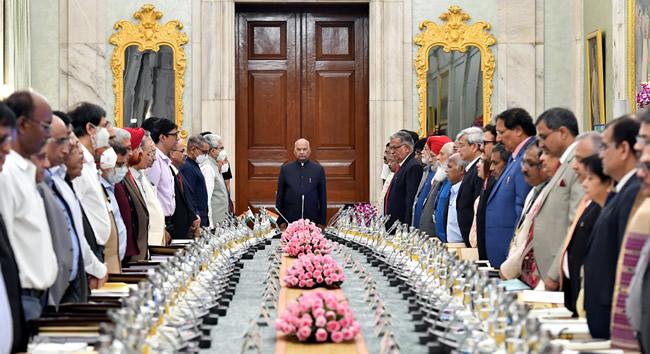
New Delhi, June 07, 2022 — The President of India, Shri Ram Nath Kovind, inaugurated the two-day Conference of Vice-Chancellors of Central Universities and Directors of Institutions of National Importance at Rashtrapati Bhavan today. The President is the Visitor of 161 Central Institutes of Higher Education. Out of 161 institutes, 53 are physically attending the Conference, while others are connected virtually.
Source: President’s Secretariat
|GlobalGiants.Com|
Edited & Posted by the Editor | 1:47 PM | View the original post
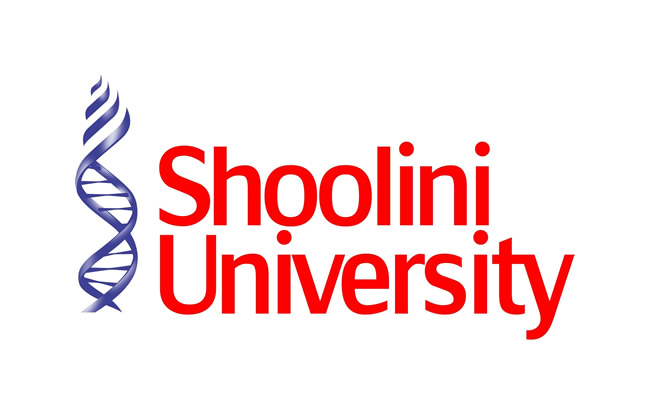
SOLAN, India, June 2, 2022 — Times Higher Education (THE) Awards Asia has highly commended and awarded the second prize for ‘outstanding support for students’ to Himachal Pradesh-based Shoolini University of Biotechnology and Management Sciences.
Dubbed the ‘Oscars of Higher Education,’ THE Awards offer an important international platform to recognize and applaud outstanding leadership and institutional performance. THE Asia Awards celebrate the achievements of the continent’s higher education.
Shoolini University, a pioneering University located in the foothills of the Himalayas, has taken the novel step of bringing the Coaching facility to its students through a partnership with the International Coaching Federation (ICF).
Under the program, over 600 students have transformed their lives through coaching by 100 International ICF Credentialed Coaches. In addition, it has helped students develop the art of questioning.
Hailing the award, Chancellor Prof. PK Khosla said he was elated to hear the news. “The university has been taking proactive steps to support the students in all possible ways. For example, our ‘VEmpower Coaching Program’ is unique as it involves over 100 certified coaches worldwide to provide guidance and coaching to Shoolini students,” Prof. Khosla remarked.
Source: Shoolini University
|GlobalGiants.Com|
Edited & Posted by the Editor | 11:03 AM | View the original post
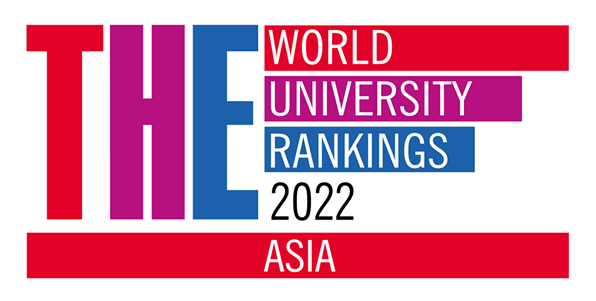
Nagoya, Japan, June 01, 2022 — Times Higher Education has published its Asia University Rankings 2022, revealing the top institutions across the diverse and dynamic continent.
There are now six Saudi Arabian universities in the top 100, up from four last year, and four in the top 50, double the number in 2021.
The best-performing institution in Saudi Arabia is King Abdulaziz University, which ranks 28. The public university in Jeddah was established in 1967 by business people before being converted to a public institution seven years later. It scores especially highly for international collaboration (93.6 out of 100) and citations (92.4).
King Abdulaziz University ranks joint 190th in THE’s World University Rankings 2022; the results, published last year, marked the first time a university from Saudi Arabia got included in the top 200.
Overall, there are 15 Saudi universities in the Asia rankings, up from 10 in 2021 and seven in 2020.
Following King Abdulaziz is Alfaisal University in 34th position. The private, not-for-profit institution is in Riyadh.
King Saud University, a public institution in Riyadh, ranks joint 44th, up from 53rd last year. King Saud was the first Saudi university established in 1957 and was initially named Riyadh University.
King Fahd University of Petroleum and Minerals also ranks among the top 50, at 48th position, up from joint 84th last year.
Vision 2030, Saudi Arabia’s national strategy introduced by Mohammed bin Salman in 2016, includes a target of at least five Saudi universities ranking among the top 200 in international rankings. The plan aims to move the Saudi economy from an over-reliance on oil revenues to a more balanced financial model in which higher education is integral.
China still leads the Asia rankings, with Tsinghua and Peking universities taking the top two spots for the third consecutive year. The country has secured its dominance in the region, being home to nearly a third of institutions (30) in the top 100.
In contrast, Japan has six fewer universities in the top 100 than in 2020, with just eight, down from 14. However, it is still the most-represented nation overall, with 118 institutions.
The Asia University Rankings use the same 13 performance indicators as the World University Rankings, but they are recalibrated to reflect the attributes of Asia’s institutions.
• THE Asia University Rankings 2022 —Â TOP 100
Source: Times Higher Education
|GlobalGiants.Com|
Edited & Posted by the Editor | 5:51 AM | View the original post
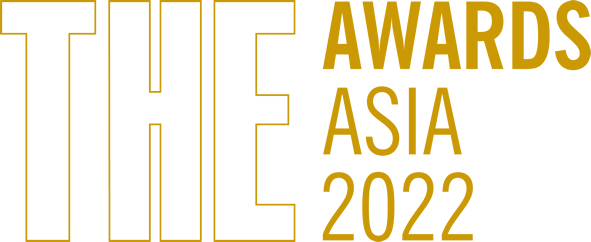
Nagoya, Japan, June 01, 2022 — The Nanyang Technological University (NTU) team has taken the top accolade amid stiff competition for Times Higher Education’s awards for Asian institutions.
NTU took the prize for Leadership and Management Team of the Year at 2022’s THE Awards Asia.
Judges said that NTU had “achieved an outstanding rate and quality of development in recent years and has become one of the sector’s global leaders.”
In its fourth year, the event builds on the success of THE’s long-running UK-focused awards, known as the “Oscars of higher education.” This year as in 2021, the Asia awards received nearly 500 entries with submissions from 22 countries or territories, whittled down to 80 finalists.
The 2022 awards saw India punch above its weight, the only country with two winners.
India also boasted the most significant number of shortlisted submissions from any country, with 11 institutions in the running. Other top-performing countries include Malaysia, with ten institutions, and China, with eight.
THE’s chief knowledge officer, Phil Baty, congratulated all the 2022 winners for their success in a year that has seen universities continue to grapple with the fallout of the pandemic even as they adapt to other rapidly unfolding events.
“There is no shortage of challenges, and geopolitical uncertainties threaten more upheaval, but the evidence…attests that Asia’s universities are equipped with the vision, resources, and will to rise to any task,” he said.
Institutions Shortlisted and Winners
• Leadership and Management Team of the Year
• Excellence and Innovation in the Arts
• International Strategy of the Year
• Outstanding Support for Students
• Student Recruitment Campaign of the Year
• Teaching and Learning Strategy of the Year
• Technological or Digital Innovation of the Year
• Workplace of the Year
• THE DataPoints Research Improvement Award
• THE DataPoints Impact Award
Source: THE Awards Asia 2022
|GlobalGiants.Com|
Edited & Posted by the Editor | 10:06 AM | View the original post
New Delhi, May 31, 2022 — UGC (University Grants Commission) India has issued a Public Notice concerning violations by Periyar University, Tamil Nadu, in running distance education programs per UGC (Open and Distance Learning Programmes and Online Programmes) Regulations, 2020.
Consequently, UGC has declared Periyar University’s online distance education programs invalid and warned students not to get admitted to these programs.
Incidentally, Periyar University is a NAAC ‘A++’ Grade State University.
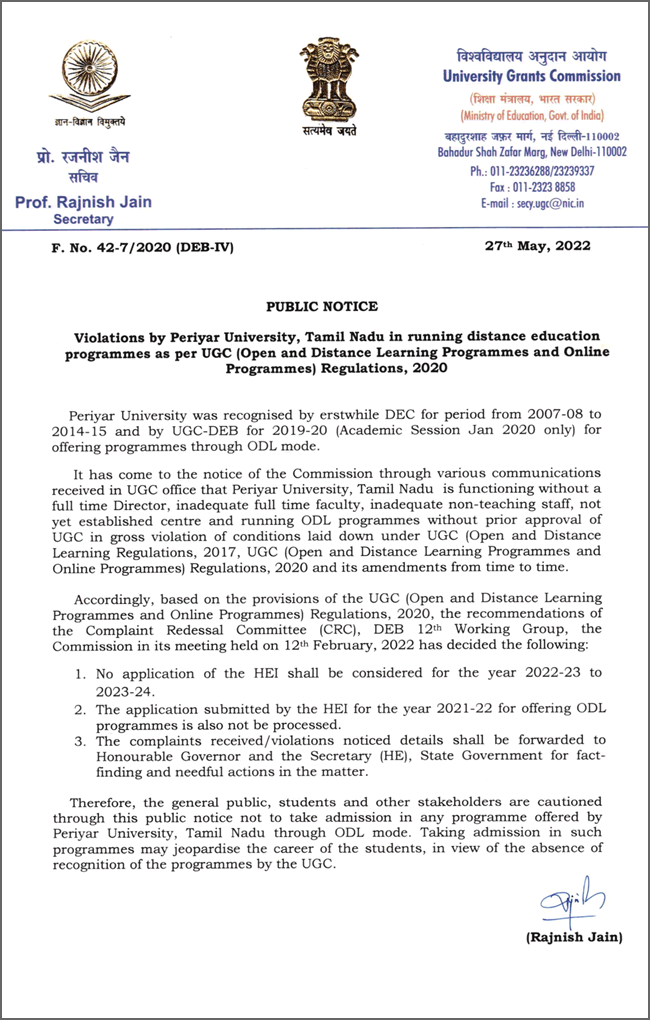
Source: UGC
|GlobalGiants.Com|
Edited & Posted by the Editor | 9:29 AM | View the original post

Applications are Open for a First-of-Its-Kind Scholarship to fund Masters and Doctoral Degrees for 100 Exceptional STEM Fellows from the Quad Nations.
Up to 25 engineers, mathematicians, scientists, and technologists from each of the four Quad countries (Australia, India, Japan, and the United States) to advance innovation and research by pursuing the Master’s and Doctoral Degrees in the USA.
Fellows Will Receive Access to Unparalleled Benefits, including Tuition Support, Learning Workshops, Mentorship by STEM Leaders, and Cross-Cultural Exchange Experiences.
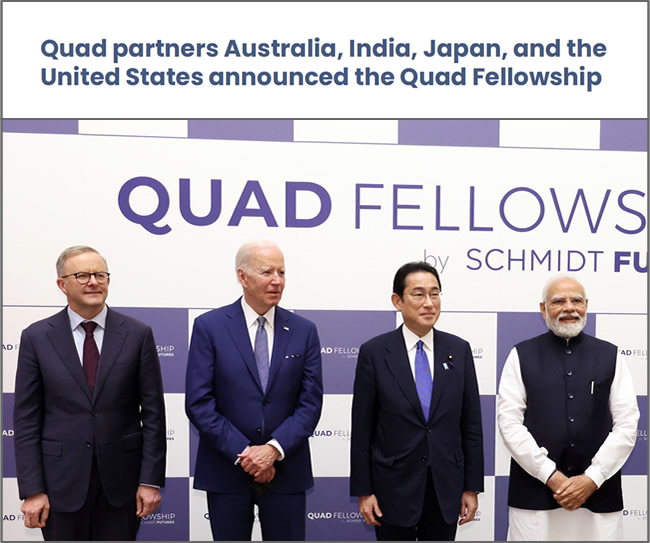
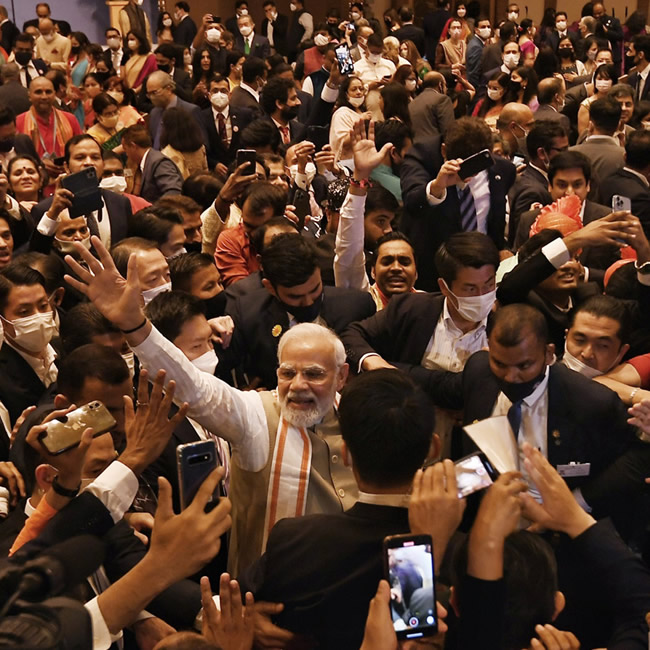
Photo: Prime Minister Modi interacting with the Indian community in Tokyo, Japan, on May 23, 2022. Mr. Modi was in Tokyo to attend the QUAD summit.
New Delhi, May 25, 2022, — University Grants Commission (UGC) India has invited Applications for QUAD Fellowships.
“Applications are invited for the Quad fellowship - a first-of-its-kind scholarship program that brings together up to 25 engineers, mathematicians, scientists, and technologists from each of the four Quad countries (Australia, India, Japan, and the United States) to advance innovation and research by pursuing their graduate degrees in the United States,” the UGC notice said.
“The Quad Fellowship, a new graduate-level fellowship designed to build ties among the next generation of scientists and technologists, is recruiting its first cohort this year,” the announcement stated. The UGC notice further explained that this program would sponsor 100 exceptional American, Japanese, Australian, and Indian master’s and doctoral students in science, technology, engineering, and mathematics (STEM) to study in the United States.
UGC also clarified that “there will be no financial liability on the part of UGC for this fellowship program.”
Earlier, Schmidt Futures had announced from New York that applications are open for the Quad Fellowship — a first-of-its-kind scholarship supporting master’s and doctoral students in STEM. The program would spur scientific and technological innovation while building global ties among the next generation of scientists and technologists.
The Quad Fellowship is a joint initiative of the governments of Australia, India, Japan, and the United States. It is the flagship educational exchange program of the Quadrilateral Security Dialogue. Operated and administered by Schmidt Futures, the Fellowship will sponsor 100 exceptional American, Japanese, Australian, and Indian graduate students in science, technology, engineering, and mathematics (STEM) to study in the United States beginning in August 2023.
“We will see more technological change in the next ten years than in the last fifty,” said U.S. President Joe Biden. “We want the next generation of scientists and technologists who will build the future to come from our Quad countries. So together, we’re launching the new scholarship program to support STEM students in each of our countries and strengthen the collaboration among our people. It’s called the Quad Fellowship.”
The Fellowship will develop a network of science and technology experts committed to advancing innovation and collaboration in their nations’ private, public, and academic sectors and Quad countries. Over 18 months of programming, Quad Fellows will receive academic support and have the opportunity to learn from leading scientists, technologists, politicians, and more from the Quad nations. Just as crucial, the program will build a foundational understanding among Quad Fellows of one another’s societies and cultures through robust community programming and cultural immersion experiences.
“We were honored to accept the invitation to lead and administer the Quad Fellowship,” said Eric Braverman, CEO of Schmidt Futures. “It is a philanthropic initiative founded by Eric and Wendy Schmidt that bets early on exceptional people making the world better. We believe that identifying and connecting talent through interdisciplinary STEM programs like this one is crucial to advancing world-changing innovation and solving our greatest challenges.”
“At the heart of the future, we see science and technology, engineering and math, because they have always been at the forefront of advancing progress and answering a human need,” said Australia’s Prime Minister Scott Morrison. “It’s a fellowship that will create new connections and helps identify solutions to some of the most pressing challenges we face across our region and the world.”
“The most important driving force in the world will be the technology for the service and the use of humanity,” said India’s Prime Minister, Narendra Modi. “Our Quad will play the role of a force for global good, and our cooperation under Quad will ensure prosperity and peace in the Indo-Pacific and the world.”
“I have great expectations that participants will become a “bridge” connecting the four countries and will be the driving force for growth, helping to resolve issues arising in the Indo-Pacific region and around the world,” said Japan’s Prime Minister Fumio Kishida.
All Quad Fellows will receive access to the following benefits and participate in the following programs upon selection:
Funding: Quad Fellows will receive a one-time, personal award of $50,000 for studying in STEM master’s and doctoral programs in the United States. Fellows can apply separately for additional, needs-based funding up to $25,000 to support the completion of their academic study, subject to conditions.
Programming: Quad Fellows will participate in regular virtual and in-person workshops on various themes, including the intersection of STEM and society, ethics and innovation, and emerging technologies. Fellows will also benefit from small-group research and support networks.
Mentorship: Quad Fellows will connect with top scientists, technologists, and national leaders from Quad countries, providing unparalleled opportunities for networking and mentorship.
Cross-Cultural Exchange: Quad Fellows will build lifelong connections within an international network of STEM innovators through flagship international experiences, including a week-long residency in Australia, Japan, or India, a weekend summit in Washington, D.C., and other in-country immersion offerings.
An International Advisory Board composed of leaders from academia, government, business, and civil society will guide Quad Fellowship selection, programming, and immersion experiences. Members include
Quad Fellowships would announce additional members of the International Advisory Board later.
Many leading corporate sponsors support the Quad Fellowship. Founding sponsors include Accenture, Blackstone, Boeing, Google, Mastercard, and Western Digital.
• For Details on the Quad Fellowship, Visit: Quad Fellowship Website
Source: UGC, QUAD, Schmidt Futures
|GlobalGiants.Com|
My message on the launch of the Quad Fellowship, which will benefit our youth. pic.twitter.com/CMlM8Tiu6a
— Narendra Modi (@narendramodi) May 24, 2022
Edited & Posted by the Editor | 12:39 PM | View the original post

Photo: The Minister of State for Science & Technology and Earth Sciences, Prime Minister’s Office, Personnel, Public Grievances & Pensions, Atomic Energy and Space, Dr. Jitendra Singh at the 50th Convocation of D.A.V. College Hoshiarpur, in Punjab on May 24, 2022.
Hoshiarpur, Punjab, India, May 24, 2022 — India’s Minister of State for Science & Technology, Dr. Jitendra Singh, said that the new National Education Policy supplements the Start-Up ecosystem with the promise to open new career and entrepreneurship opportunities for students and youth in India.
Dr. Singh was addressing the 50th Convocation of D.A.V. College, Hoshiarpur. He said Punjab must reclaim its past glory as a premier education hub of India. He recalled that even in pre-Independence India, Government College Lahore and Punjab University Lahore were among the leading educational institutions in the entire subcontinent.
Dr. Jitendra Singh reminded the academia and students of the historical context and said that until independence in 1947, Punjab University Lahore (now in Pakistan) fulfilled the educational needs of a vast subcontinent region. After Bombay, Madras, and Calcutta, the British Government established Punjab University Lahore in 1882. Dr. Singh added that the British Government similarly established the Lahore College for Women as a residential college in May 1922.
Dr. Jitendra Singh said the contribution of D.A.V. institutions in spreading the light of education has indeed been invaluable, and one must be proud to receive a graduation or post-graduation degree from one of the premier institutions of North India. He said it’s also heartening to note that D.A.V. has routinely been ranked among the top institutions of India and congratulated all for this achievement.
Dr. Jitendra Singh emphasized that Convocation day or Graduation ceremony does not mean the end of your learning. But it is a continuous process as new opportunities emerge every day. Referring to Skill India Mission, he urged the students to imbibe multiple skills to be successful in life as there is an ample number of examples to show that those equipped with the latest skills are doing wonders in the world today.
In conclusion, the Minister said that Convocation day is one of the most critical days in a student’s life. It is not just an acknowledgment of your hard work but a token of your responsibility towards society. He said, you are fortunate to have studied in an institution like D.A.V. College, and on this solemn day, you must not fail to acknowledge your parents and teachers who have guided you.
Source: Ministry of Science & Technology, India
|GlobalGiants.Com|
Edited & Posted by the Editor | 10:57 AM | View the original post
India’s National Testing Agency (NTA) will conduct Common University Entrance Test (CUET-PG) for Postgraduate Admissions in the last week of July 2022.
Common University Entrance Test (CUET-PG) for Postgraduate Admissions will provide a single-window opportunity for students to seek admission to participating Universities.
Application Form submission has started today on the NTA website. In addition, program details will be available on the websites of participating Central Universities & other Universities.
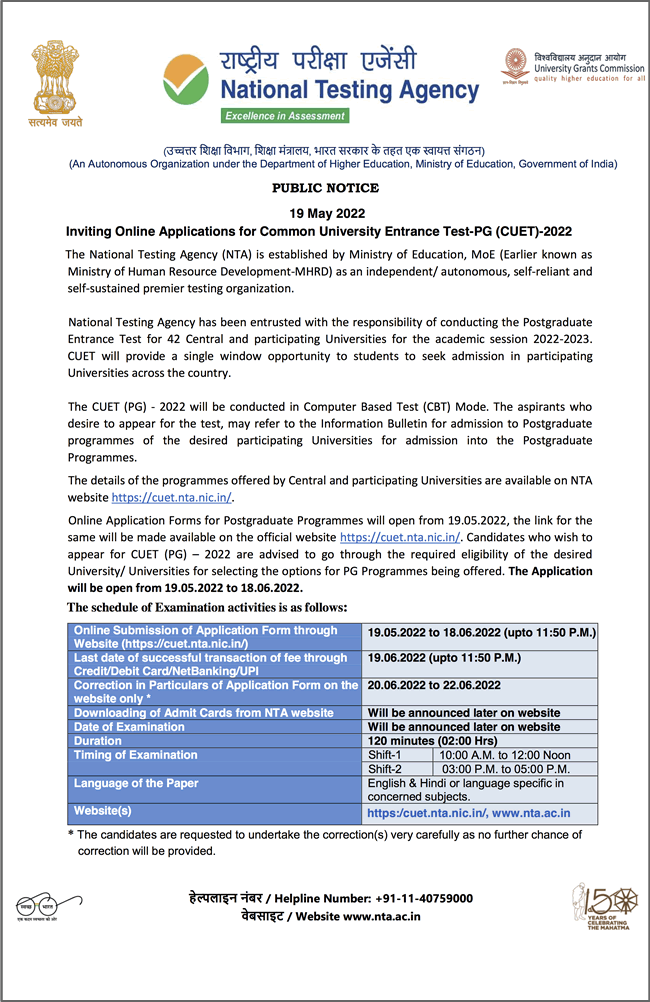
Source: National Testing Agency (NTA)
|GlobalGiants.Com|
Edited & Posted by the Editor | 1:07 AM | View the original post
- The third UNESCO World Conference on Higher Education is taking place from May 18 to May 20, 2022, in Barcelona, Spain, to chart a renewed vision for higher education in the next decade.
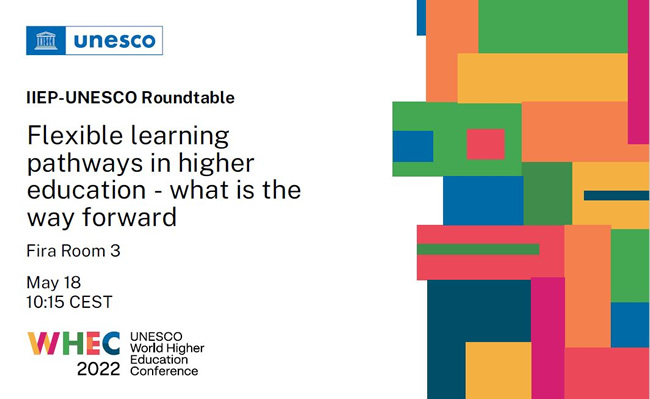
Barcelona, Spain, May 18, 2022 — There are 235 million students enrolled in higher education worldwide. This number has more than doubled in the last 20 years and will likely double again over the coming decade.
Faced with such growing demand, how can we ensure quality higher education adapted to contemporary challenges such as sustainable development? How can international academic mobility be supported? What lessons can we learn from the COVID-19 pandemic? These questions will be at the heart of the World Conference.
More than 1,500 participants are attending the event coming from universities, governments, multilateral agencies, the private sector, and civil society to share their experiences and ideas to draw a joint global roadmap for the coming decade.
UNESCO Director-General Audrey Azoulay, the Spanish Minister of Universities, Joan Subirats, the President of the Generalitat of Catalonia, Pere Aragonès, and the Mayor of Barcelona, Ada Colau, opened the Conference.
• Democratizing access
Disparities persist despite a remarkable 200% increase in enrolment in 20 years in sub-Saharan Africa, Central Asia, and South and South-East Asia. As a result, between 40% and 50% of an age group are enrolled in higher education in East and South-East Asia, Latin America, and the Caribbean. In Central and South Asia, however, only 25% are registered. And the figure drops to 9% for sub-Saharan Africa.
Expanding access to education is necessary, but it has significant logistical and budgetary implications for governments, particularly developing countries. There has been a trend toward increasing tuition fees and other indirect costs in many places, burdening the finances of students and their families.
• Increasing student mobility
Six million of the global student population are studying abroad, and this number will rise to 8 million by 2025. But international frameworks are needed to support mobility, an academic asset for students and a boost to knowledge sharing and mutual understanding.
At the Barcelona Conference, UNESCO will call on its Member States to pursue ratification of the Global Convention on the Recognition of Qualifications concerning Higher Education, the first UN treaty to strengthen inter-university cooperation and cross-border academic research. Fourteen states have already ratified the text, and only seven more signatures are needed to enter it into force.
• Learning from the pandemic
The COVID-19 pandemic challenged higher education systems resulting in learning losses and increased inequalities. However, it has also shown that higher education systems with significant public funding are more resilient in the face of a global crisis and better able to ensure continuity of provision and inclusion of the most important number of students. The Conference will draw lessons from the past two years to design more robust and resilient systems.
To develop the roadmap for higher education to 2030, the Conference will focus on the following themes: (1) Impact of COVID-19 on Higher Education; (2) Higher Education and the Sustainable Development Goals; (3) Inclusion; (4) Quality and Relevance of Programmes; (5) Academic Mobility; (6) Governance; (7) Financing; (8) Data and Knowledge Production; (9) International Cooperation and (10) The Futures of Higher Education.
The International Council for Science (ICS) and the International Association of Universities (IAU) are among the conference partners, as well as the Global Universities Network for Innovation (GUNI/ACUP) and the Catalan Association of Public Universities.
Source: UNESCO
|GlobalGiants.Com|
— The Editor is a UNESCO IIEP (International Institute for Educational Planning, Paris) trained “Independent Appraiser” of Education Sector Plans.
Edited & Posted by the Editor | 6:27 AM | View the original post
Global Anthology research study reveals accessibility barriers and technology needs in higher education.

BOCA RATON, Fla., May 17, 2022 — Anthology, a leading provider of education solutions that support the entire learner lifecycle, today announced the results of its 2022 global research study: Comparing Global University Mindsets and Student Expectations. The study surveyed more than 5,000 higher education leaders and current students from countries worldwide, including the United States, Australia, Brazil, Colombia, India, Japan, Spain, Saudi Arabia, South Africa, and the United Kingdom.
Findings revealed that student expectations following the pandemic do not fully align with what university leaders envision for the future, indicating an opportunity for higher education institutions to adjust to the learner experience to support better outcomes.
“As universities continue to drive digital transformation, they face new hurdles around everything from course delivery and support services to accessibility and how they equip their students and staff with technology,” said Jim Milton, Chairman and CEO at Anthology. “We believe that technology plays a vital role in shaping the future of higher education across the globe, and results from this study validate that viewpoint as leaders consider the impact of technology and data on the overall student experience.”
• Financial Barriers and Lack of Technology Access
Outside the pandemic, the economy continues to have the most significant impact on learners across all regions (73 percent), followed by a lack of access to technology (35 percent). Lack of technology access was significantly higher in the Middle East and Africa, where 54 percent of students indicated this was a challenge. University leaders in most regions are mainly in sync with these challenges. Still, only 30 percent of higher education leaders in the Middle East and Africa felt that technology access was a concern for their students, indicating a discrepancy between their perception and the student experience.
• Hybrid Instruction for the Foreseeable Future
More than 80 percent of students globally now prefer that at least some of their courses or instructional meetings take place online. As a result, leaders are moving their universities in the right direction, with more than a third (38 percent) indicating that a mix of online and in-person course delivery would be the model at their institution by 2025, increasing from 16 percent currently.
Nearly a quarter of North American leaders (24 percent) stated that courses would still be offered in an entirely in-person format by 2025 - a significantly higher percentage than any other region. The highest percentage of students interested in fully asynchronous courses were from North America, representing the most significant gap compared to student preferences for how classes are offered.
• Investing in Holistic Technology
Learners globally want - and expect - technology to be more prevalent in their higher education experience. University leaders agree, with 60 percent stating that their university currently lacks the appropriate digital learning tools to help students succeed. While only 26 percent of university leaders have significantly increased the number of digital learning tools utilized over the past two years, more than half are considering additional technology investments.
The majority (94 percent) of university leaders agree that a holistic view of learner data pulled across multiple systems would benefit their team and help more students achieve their goals. The same percentage indicates that their university is actively looking for new opportunities to aggregate and analyze data to drive more insights, ultimately seeking to use data to help improve outcomes for student populations through personalization.
Anthology partnered with Thrive Analytics to execute its 2022 survey, Comparing Global University Mindsets and Student Expectations. The survey targeted student respondents currently enrolled at a higher education institution pursuing a degree or diploma. University leader respondents are senior leaders (Dean, Provost, Rector, etc.) at a higher education institution. In total, 2,572 current university leaders and 2,725 students completed the survey.
“Anthology” offers the largest EdTech ecosystem globally for education, recently combining with Blackboard to support more than 150 million users in 80 countries.
Source: Anthology
|GlobalGiants.Com|
Edited & Posted by the Editor | 1:47 AM | View the original post
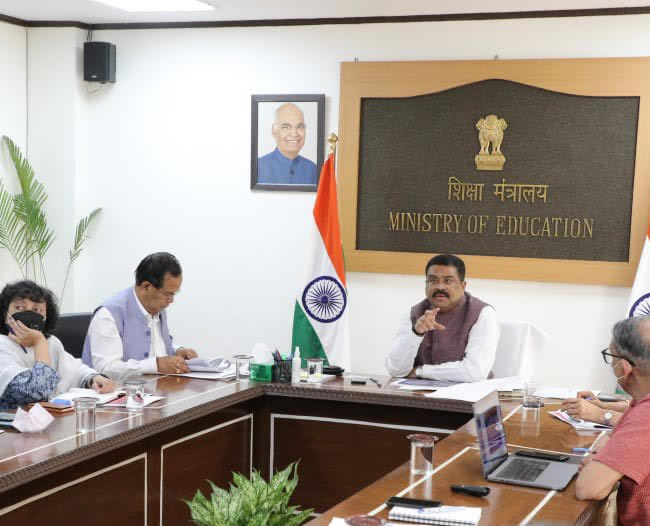
Photo: Dharmendra Pradhan chairs a meeting on the formulation of HECI in New Delhi.
New Delhi, May 09, 2022 — Union Education and Skill Development Minister Dharmendra Pradhan today had an extensive consultation on taking further steps to formulate the Higher Education Commission of India (HECI).
Mr. Pradhan said that HECI should ensure employability, job creation, and a global outlook during the meeting. He added that it should ensure international academic standards and provide more academic autonomy to higher education institutions.
He further said that this critical recommendation of NEP-2020 will be one of the many steps in the direction of decolonization of the education system of the country.
The Higher Education Commission of India (HECI) would be an overarching umbrella for the guidance of all the higher education institutions in the country.
Source: Ministry of Education
|GlobalGiants.Com|
Edited & Posted by the Editor | 4:47 PM | View the original post

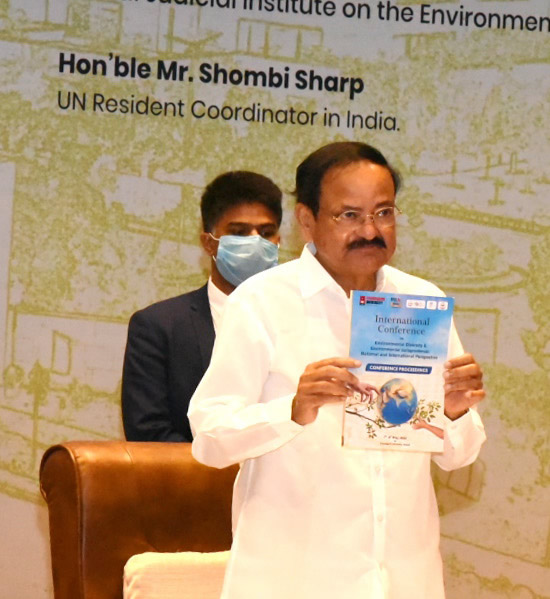
Photo: The Vice President, M. Venkaiah Naidu, released the Annual Report of Chandigarh University in Mohali on May 7, 2022.
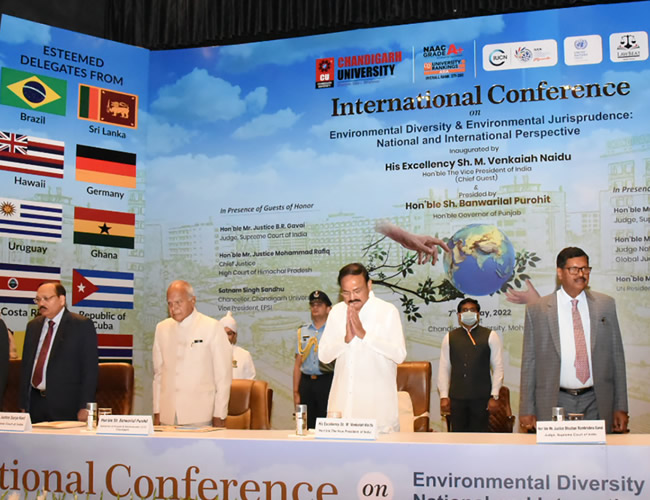
Photo: The Vice President, M. Venkaiah Naidu, at the inauguration of the International Conference on Environmental Diversity and Environmental Jurisprudence at Chandigarh University in Mohali on May 7, 2022.
Chandigarh, May 07, 2022 — Today, the Vice President of India, M. Venkaiah Naidu, called for ‘collective action’ from people and enabling policies to limit the impact of climate change. “To be able to achieve the 1.5°C global warming limit, we must aim at both macro-level systemic changes as well as micro-level lifestyle choices. Therefore, we need a people’s movement for environmental protection”, he said.
Mr. Naidu called for weighty introspection and bold actions to mitigate the reality of increasing extreme events and diminishing biodiversity. But, he said, “it is not only the duty of the government to deliberate, but it is also the duty of every citizen and human being on earth to save this planet.”
The vice president inaugurated the International Conference on Environmental Diversity and Environmental Jurisprudence at Chandigarh University, Mohali. Addressing the gathering, Mr. Naidu stressed that India has always led the world in climate action. He reiterated India’s commitment to fulfilling the ambitious national targets set by Prime Minister Narendra Modi at the recent COP26 Summit in Glasgow.
Mr. Naidu recalled that people in villages came together to protect the adjacent forests and repair ponds and canals in earlier times. “What we need today is a change in people’s mindset. Unless environmental protection becomes a people’s movement, our future is bleak.”
Stressing the need to reverse the dangerous trend of exploiting nature, Mr. Naidu appealed to lawmakers to take cognizance of the situation and make legislations that maintain a delicate balance between ecology and economy.
Emphasizing the importance of such international conferences, Mr. Naidu said that “we have to learn from each other globally and adopt best practices worldwide.” He appreciated Chandigarh University for its initiative and hoped the conference would open a new chapter in environmental protection in the country.
Source: Vice President’s Secretariat
|GlobalGiants.Com|
Edited & Posted by the Editor | 12:40 PM | View the original post
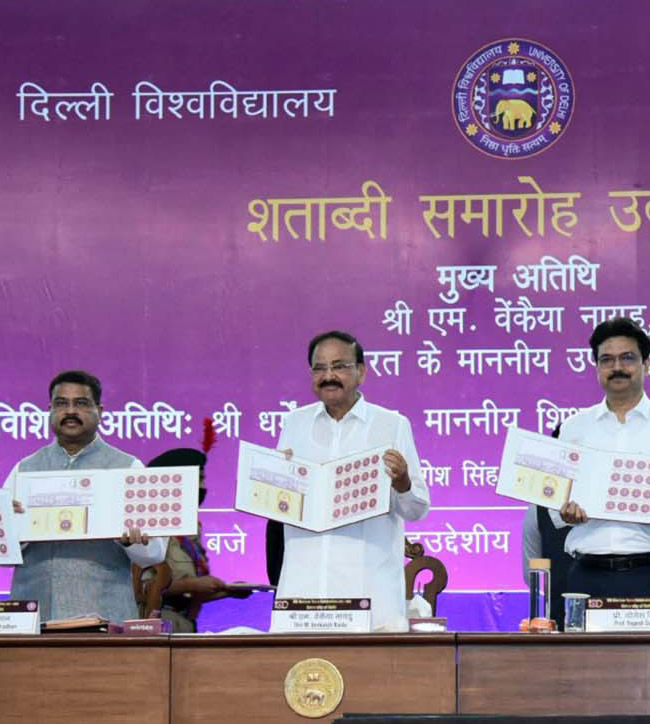
Photo: The Vice President of India, M. Venkaiah Naidu, at the inauguration of the centenary celebrations of the University of Delhi on its 100th Foundation Day, in New Delhi on May 01, 2022. Mr. Naidu released the Delhi University Centenary Commemorative Stamp issued by the Department of Posts. On his right is Mr. Dharmendra Pradhan, Union Minister of Education.
New Delhi, May 4, 2022 — The Vice President of India, Mr. M. Venkaiah Naidu, inaugurated the Centenary celebrations of the Delhi University.
Mr. Naidu reminded the gathering that ancient India had enjoyed the reputation of being a “Vishwa Guru” and was a renowned cradle of culture. He said reputed centers of knowledge, among the earliest known to humanity, like the universities of Nalanda, Takshashila, Vikramshila, Vallabhi, and Odantapuri, bear ample testimony to this fact. Mr. Naidu remarked that his deep-seated wish is to see Indian Universities ranked among the top. He asked all stakeholders to work with this aim in mind.
He emphasized that Universities must come out with innovative ideas to address the pressing problems of society. He added that the ultimate aim of the research should be to make people’s lives more comfortable and happier.
The Vice President also released the Delhi University Centenary Commemorative Stamp, Commemorative Coin, and Commemorative Book.
Mr. Dharmendra Pradhan, Union Minister of Education, Prof. Yogesh Singh, Vice-Chancellor of Delhi University, and other dignitaries attended the event.
The University Grants Commission has recognized Delhi University as an Institute of Eminence.
Source: Vice President’s Secretariat
|GlobalGiants.Com|
- UPDATE -
May 6, 2022
• Vice President Naidu asks Panjab University to Move Away from Mediocrity and follow Guru Nanak’s Teachings, Calls upon All Universities to maintain Peace on Campuses, and Focus Attention on Academic Excellence.
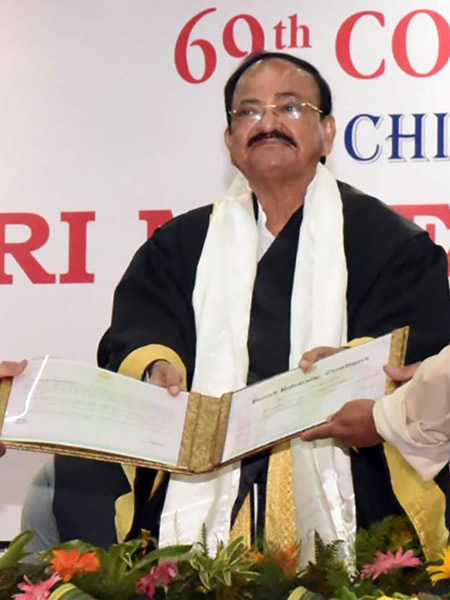
Photo: The Vice President, M. Venkaiah Naidu, at the convocation ceremony of Panjab University in Chandigarh on May 06, 2022.
Chandigarh, May 6, 2022 — Today, the Vice President, M. Venkaiah Naidu, emphasized the need for Universities to accord greater importance to implementable patents under Intellectual Property rights to give a fillip to the economy and industry. In addition, he termed it necessary to strengthen industry-institute linkages for better research outcomes.
Addressing the 69th Convocation ceremony of Panjab University in Chandigarh today, the Vice President said that we should move away from mediocrity.
Calling for making good quality education accessible and affordable to all, the Vice President wanted such education to positively transform an individual’s outlook, societal cohesion, and inclusive national development.
Mr. Naidu emphasized that education should transform how we look at the planet and interact with fellow human beings. He said that we should illuminate our life by the five virtues of Guru Nanak, namely - Sat (honest, truthful behavior), Santokh (contentment), Daya (compassion), Nimrata (humility), and Pyaar (love of humanity, love of divinity). I hope these principles will continue to inspire us to be better human beings, he added.
Terming peace a prerequisite for progress, Mr. Naidu called upon all universities to see that they maintain stability on campuses and focus attention on academic excellence. Emphasizing the importance of cohesion and harmony in society, he said that we should teach these values to the students from a young age in our schools. “There should be no place for caste, creed, religion, and gender divisions in the 21st century. We all belong to one country, India,” he said.
Source: Vice President’s Secretariat
|GlobalGiants.Com|
Edited & Posted by the Editor | 12:32 PM | View the original post
- Zicklin School of Business Program Trains Senior Executives to “Be the Doctor in the Boardroom”
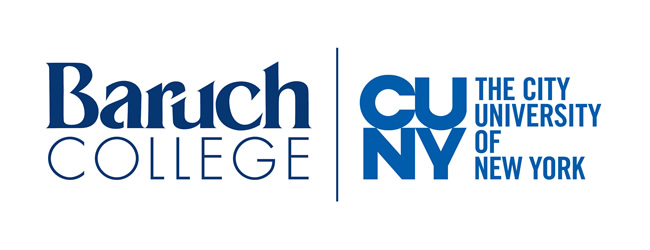
NEW YORK, May 4, 2022 — Baruch College’s Zicklin School of Business is the first institution in New York State authorized to award the Doctor of Business Administration (DBA) Degree. Zicklin’s DBA Program is one of the school’s impressive professional and executive degree offerings for business executives and corporate leaders.
According to Fenwick Huss, Willem Kooyker Dean of the Zicklin School of Business, “The DBA Program exemplifies Zicklin’s commitment to delivering relevant, academically rigorous business education that is world-class in both quality and reputation.”
The program’s faculty have developed a unique, multidisciplinary curriculum that employs a wide range of traditional and cutting-edge research methodologies to address the critical business issues of the day.
The DBA is the premier terminal degree for practical and applied business problems, both in the United States and worldwide. The three-year doctoral program is designed for senior executives with seven or more years of executive experience who seek empirical knowledge and research experience at the doctoral level. Graduates will gain skills needed to thrive in the C-suite, broaden their opportunities as consultants, and enter the college classroom as clinical professors. This program complements Baruch’s traditional Ph.D. program in Business, which focuses on developing research scholarship and training for career paths in academia.
Baruch College provides students with the skills, knowledge, and perspectives to pursue their aspirations in today’s global environment. Baruch is among the USA’s top public colleges for academic excellence, affordability, student success, and value.
Source: Baruch College
|GlobalGiants.Com|
Edited & Posted by the Editor | 2:44 AM | View the original post

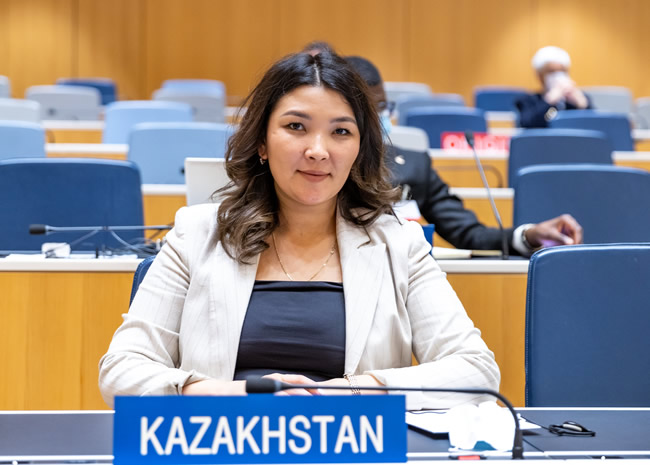
Photos: Delegates from Finland and Kazakhastan at the Forty-Fifth Session of the World Intellectual Property Organization (WIPO) Standing Committee on the Law of Trademarks, Industrial Designs, and Geographical Indications in Geneva, Switzerland, from March 28 to March 30, 2022. Images provided by & Copyright © WIPO. Photos: Emmanuel Berrod.
Geneva, April 28, 2022 — Competitors from Syria, Ghana, and China won the top three spots in the youth video competition for this year’s World Intellectual Property Day, which carries the theme “IP and Youth Innovating for a Better Future.”
Hekma Jabouli from Syria won the first prize with her short film showing a homemade smart device designed to help her sister regain mobility after a shrapnel injury to her spinal cord.
In an online vote, Ms. Jabouli’s video was selected best submission among an original pool of nearly 150 entries from dozens of countries.
John Wobil from Ghana took second place for his video about a new rice thresher. At the same time, digital designers Li Binglu and Cai Quinge, Chinese nationals living in Japan, came third with their story about creating new pictograms or emojis to forge connections among remote workers.
WIPO Director General Daren Tang said that younger people are already working on solutions to shared issues, supported by intellectual property (IP) rights like trademarks, patents, designs, Copyright, and others that help people earn a living from their work.
“When humanity needs to come together to address a range of urgent challenges - from overcoming the pandemic to combatting climate change - we must help our youths realize their innovation potential,” Mr. Tang added.
This year, on World Intellectual Property Day, WIPO is celebrating the vision and dynamism of young innovators and creators everywhere.
“WIPO is working to build a more inclusive IP ecosystem by expanding access to IP for groups who have been historically under-represented, including women, smaller enterprises, and younger people, so we selected this year’s theme. A better future begins with young people, and WIPO intends to ensure that IP is there to help them grow,” the organization stated.
The three winning videos were screened at an event at WIPO headquarters on April 26, commemorating World IP Day. The event, entitled “Innovating for Better Health: Supporting Young Innovators through IP,” brought together young innovators from different regions and explored the challenges they face and how innovation ecosystems need to evolve to enable them to thrive.
In 2000, WIPO’s member states designated April 26 - the day the WIPO Convention came into force in 1970 - as World Intellectual Property Day to increase general understanding of intellectual property (IP). Since then, World IP Day has offered a unique opportunity each year to join with others around the globe to consider how IP contributes to the flourishing of music and the arts and to driving the technological innovation that helps shape our world.
The World Intellectual Property Organization (WIPO) is the global forum for intellectual property policy, services, information, and cooperation. A specialized agency of the United Nations, WIPO assists its 193 member states in developing a balanced international IP legal framework to meet society’s evolving needs. It provides business services for obtaining IP rights in multiple countries and resolving disputes. It delivers capacity-building programs to help developing countries benefit from using IP. And it offers free access to unique knowledge banks of IP information.
Source: WIPO
|GlobalGiants.Com|
— The editor is a WIPO Academy alumnus.
#WorldIPday
— MOE's Innovation Cell- GOI (@mhrd_innovation) April 26, 2022
Join us live at https://t.co/l0DZBYyKgH pic.twitter.com/SFfNbJuMBo
Edited & Posted by the Editor | 10:44 AM | View the original post
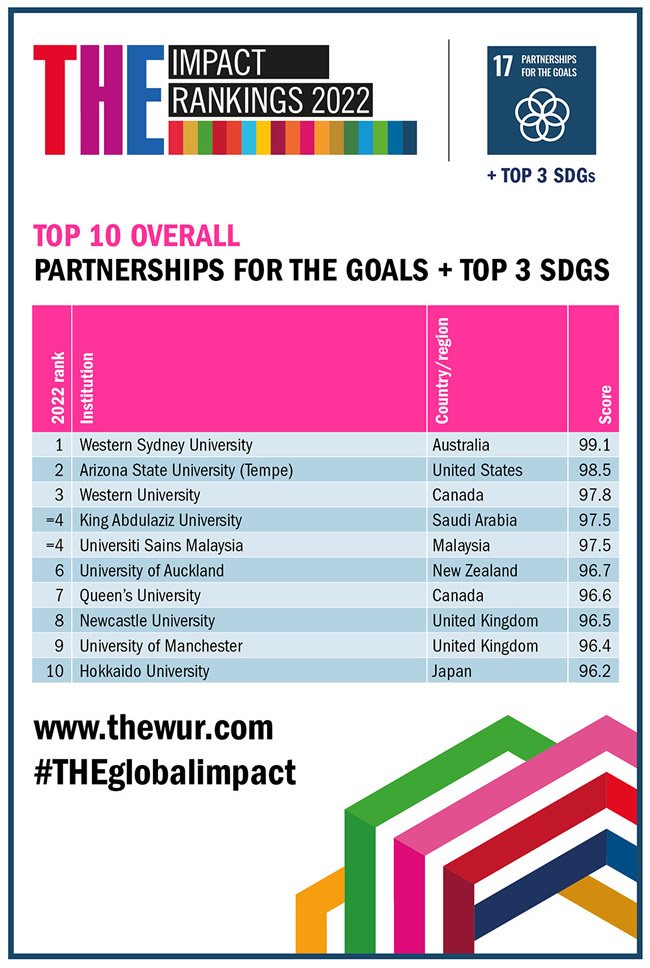
London, April 27, 2022 — The Times Higher Education (THE) Impact Rankings are the global performance tables that assess universities against the United Nations’ Sustainable Development Goals (SDGs). THE says it uses carefully calibrated indicators to provide comprehensive and balanced comparison across four broad areas:
The 2022 Impact Rankings is the fourth edition, and the overall ranking includes 1,406 universities from 106 countries/regions.
An Australian institution, Western Sydney University, leads the overall ranking.
In second place is the US’s Arizona State University, and third is Western University from Canada.
No one country dominates the top 10, with universities from the UK, Saudi Arabia, Malaysia, New Zealand, and Japan also featuring.
The top institutions from an emerging economy are King Abdulaziz University in Saudi Arabia and Universiti Sains Malaysia, in joint fourth place.
According to THE, the Impact Rankings are inherently dynamic: they are overgrowing each year as many more universities seek to demonstrate their commitment to delivering the SDGs by joining the ‘THE’ database. These rankings allow institutions to show rapid improvement year on year by introducing clear new policies or providing more transparent and open evidence of their progress.
• Following universities from India appear in the top 300
(India Rank) — ‘THE’ Global Rank — University
(1) 41 - Amrita Vishwa Vidyapeetham (Amritanagar, Coimbatore, Tamilnadu, 641112, India)
(2) =74 - Lovely Professional University (Jalandhar-Delhi G.T. Road, Phagwara, Punjab, 144411, India)
(3) 101-200 - Shoolini University of Biotechnology and Management Sciences (Solan-Oachghat-Kumarhatti Highway, Bajhol, Himachal Pradesh, 173229, India)
(4) 201-300 - Amity University, Gurugram (India Amity Education Valley, Gurugram, Haryana, 122 413, India)
(5) 201-300 - University of Calcutta (India Senate House, College Street, Kolkata, West Bengal, 700073, India)
(6) 201-300 - Chitkara University (Patiala National Highway NH-64, Chandigarh, Punjab, 140401, India)
Source: Times Higher Education
|GlobalGiants.Com|
In sub-category 'Decent Work and Economic Growth', CU has been awarded Global Rank 14 th. Congratulations to CU authorities, faculties, researchers, students. (2/2)
— Mamata Banerjee (@MamataOfficial) April 28, 2022
Edited & Posted by the Editor | 3:56 PM | View the original post


Paris, April 21, 2022 — UNESCO and the Fondation L’Oréal have invited scientists worldwide to nominate candidates for the 2023 L’Oréal-UNESCO For Women in Science (FWIS) International Awards.
The 2023 edition of the FWIS International Awards will designate five outstanding scientific women researchers in Physical sciences, Mathematics, and Computer science. Each of the five Laureates will receive an award of €100,000 for her contribution to scientific research at a ceremony in Paris in March 2023.
Nominations must be submitted through the dedicated online platform by Tuesday, May 31, 2022.
Source: L’Oréal-UNESCO For Women in Science International Awards
|GlobalGiants.Com|

Edited & Posted by the Editor | 11:32 AM | View the original post
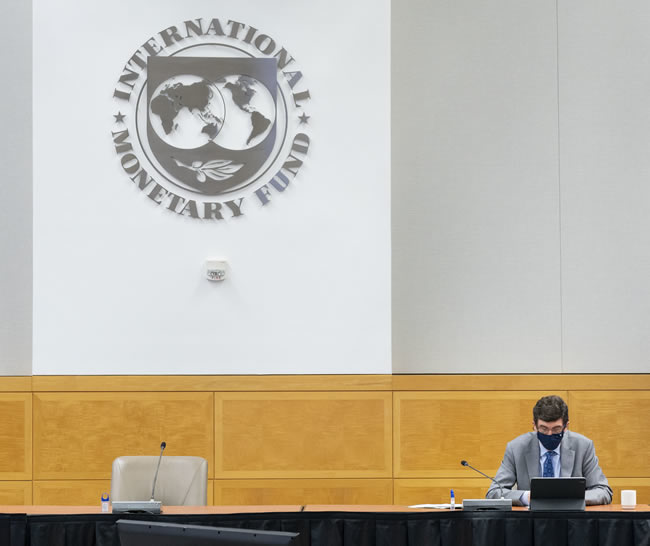
Photo: Post Spring Meetings 2021, Head of Department Meetings Chief of Staff, Dominique Desruelle, looks on during the post-2021 Spring Meetings meeting with the department heads at the International Monetary Fund. Washington, DC, United States. Image provided by & copyright © IMF Photo/Cory Hancock. [File photo]
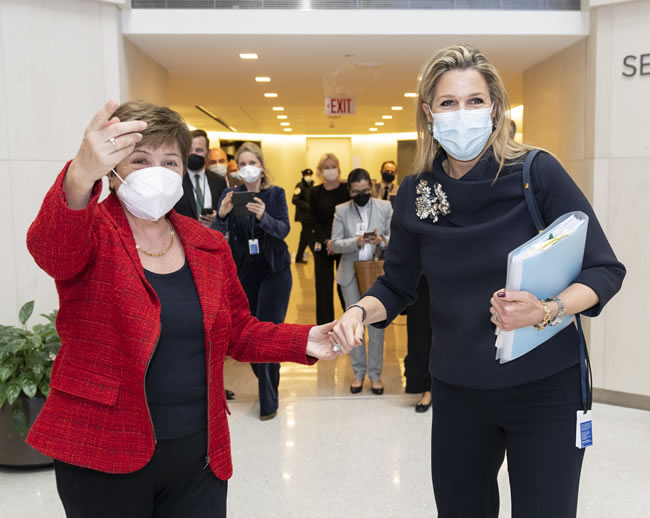
Photo: IMF Managing Director Kristalina Georgieva meets with Queen Máxima of the Netherlands at the International Monetary Fund on March 23, 2022. Washington, DC, United States. Image provided by & copyright © IMF Photo/Cory Hancock.

Photo: Supply Chain and Inflation. There are high gas prices at gas stations in the Washington, DC, metropolitan area. January 19, 2022. Washington, DC, United States. Image provided by & copyright © IMF Photo/Cory Hancock.

Washington, DC, April 15, 2022 — The IMF’s Managing Director Kristalina Georgieva raised the 2022 Spring Meetings curtain yesterday, April 14, in an event hosted by Carnegie Endowment for International Peace. The IMF MD stated that the world is facing a crisis on top of an emergency: First, the pandemic, and second, Russia’s invasion of Ukraine.
Global growth prospects vary significantly across countries: from catastrophic economic losses in Ukraine to a severe contraction in Russia to countries facing spillovers from the war through commodity, trade, and financial channels, IMF said. IMF will release detailed forecasts in the World Economic Report next Tuesday.
“The outlook has deteriorated substantially, largely because of the war and its repercussions. In addition, inflation, financial tightening, and frequent, wide-ranging lockdowns in China causing new bottlenecks in global supply chains are also weighing on activity. As a result, we will be projecting a further downgrading global growth for 2022 and 2023. Fortunately for most countries, growth will remain in positive territory. That said, the impact of the war will contribute to forecast downgrades for 143 economies this year, accounting for 86 percent of global GDP,” said Georgieva.
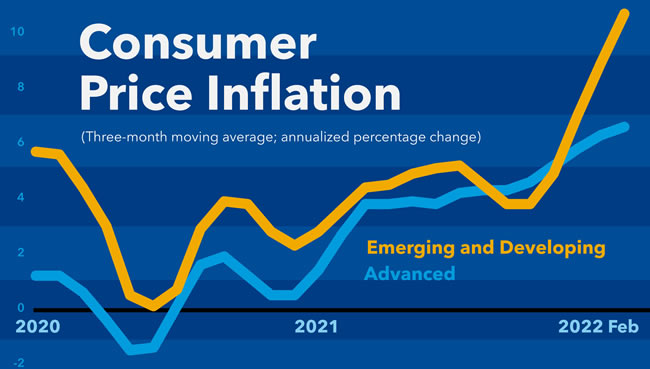
Photo: Consumer Price Inflation Chart. Source: IMF.
Emerging and developing economies face the added risk of potential spillovers from monetary tightening in advanced economies—higher borrowing costs and capital outflows.
“The Russian invasion of Ukraine triggered spillovers through three main channels. The first is commodity prices, wheat oil, gas, and metals. The second one is the pressure on inflation and the necessity for central banks to tighten up faster than they would otherwise with all the consequences for emerging markets. And the third one is the financial channels remittances and the impact on how the monetary system will look after the war. So when you look at this impact from a human standpoint, the most dramatic one is food prices. Why? Because that comes on top of already deepening food insecurity in many parts of the world. Remember, we had bad harvests in several countries, locusts in Africa, and the Horn of Africa that have already generated pressure. And now the war is heating on the world’s low-income families even more,” added Georgieva.
Georgieva concluded the event by stressing that the international community’s immediate priorities are to end the war in Ukraine, confront the pandemic, and tackle inflation and debt.
“2020 is the record highest borrowing year since World War II. Even the global financial crisis didn’t lead to such an expansion of borrowing in one year. Now, when we have a global debt level of 256% of global GDP, we have to think of its impact. Interest rates are low. In some cases, even negative, this is easy. In fact, in 2021, debt went up, but debt service in many countries went down. Why? Because of accommodative monetary policy. When inflation accelerated, I should say that part of the inflation pressure came from demand picking up after the pandemic. Still, supply chains are getting broken, and supply is not catching up with this demand. Price stability is essential for growth, so central banks have to take action. They have to act decisively. Interest payments go up when they do so, and servicing debt becomes much more difficult,” the IMF MD concluded.
The world’s financial leaders are set to meet in Washington, DC, next week for the IMF and World Bank Spring Meetings.
Rising inflation, the economic impact of the war in Ukraine, and the lingering effects of the pandemic are front and center for policymakers.
Source: International Monetary Fund (IMF)
|GlobalGiants.Com|
— The editor holds certification in “Financial Market Analysis” from International Monetary Fund, Washington, DC.
Edited & Posted by the Editor | 1:05 PM | View the original post
 |
 |
